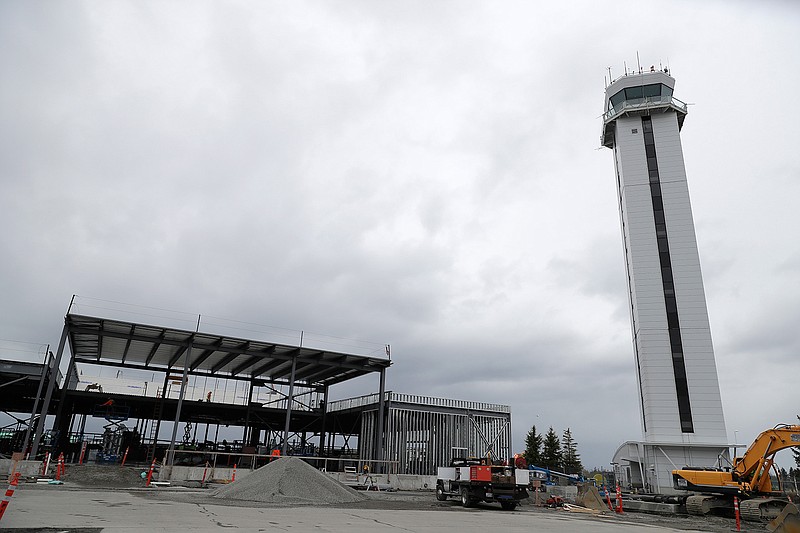EVERETT, Wash.-It's not uncommon to see brand new commercial jets flying in and out of Paine Field, just north of Seattle, defying rain and low visibility that define the region. That's because the airport with two runways has for decades served as home to Boeing assembly lines, rolling out models such as the 777 for test flights over the Pacific Ocean.
Now an entrepreneur is getting a chance to build the airport's first passenger terminal, betting travelers in Seattle's rapidly-expanding suburbs will use it for short-haul trips instead of fighting traffic and long lines at SeaTac International, one of the country's busiest hubs.
Brett Smith's company is investing about $40 million to build the terminal. In the process, he wants to increase U.S. acceptance of a global trend: Putting commercial airport terminals in the hands of private companies instead of the government. Smith is the founder and chief executive officer of Propeller Investments LLC., which secured a 50-year agreement with Snohomish County three years ago through a local subsidiary to build and operate the terminal in Everett, Washington. Operations are due to start in the fall, with announcements already made from Alaska Airlines, Southwest Airlines and United Airlines for up to 24 flights per day.
The deal stands out for U.S. airports because it's structured as a public-private partnership, a model that divides the responsibilities of owning and operating public assets between governments and the private sector. It's also notable because Propeller has no experience in building or operating airport terminals.
The project contrasts with about 500 commercial airports across the U.S., where local governments own and operate most of the facilities. Those airports have relied on decades of federal funding and passenger fees to help finance infrastructure improvements. But traditional funding sources have remained flat since the turn of the century, failing to keep up with increased air travel demand.
Airport privatization proponents point to efficiencies and variety of passenger amenities like stores and restaurants found in major European hubs such as London's Heathrow and Frankfurt Airport, both of which are run by companies and rated among the 10 best airports in 2018 by Skytrax, an independent agency that ranks airports and airlines based on traveler reviews. No U.S. airports made the list this year.
"Public-private partnerships in the airport realm were almost unheard of 18 months ago. Now barely a day goes by where I don't get a call asking about them," said Peter Kirsch, a Denver-based partner at Kaplan Kirsch Rockwell, the law firm that represented Snohomish County during its negotiations with Propeller. The firm also represented Propeller during its talks with the airlines. "It's the future of airport development."
Only a handful of U.S. airports have adopted any form of privatization. Southwest Airlines financed and built a five-gate terminal at Houston's Hobby Airport that opened in 2015. Denver signed an agreement last year to allow a group of companies led by Madrid-based Ferrovial, the company that built and operates two terminals at Heathrow, to renovate Jeppesen Terminal at Denver International Airport and operate concessions. Almost half of airports in the European Union are either "fully" or "partially" private, according to a study by Airports Council International, an advocacy group made up of airport operators. It estimates U.S. airports will need to implement $100 billion of infrastructure works by 2021 to accommodate passenger and cargo volume growth.
AP Business Writer Stan Choe contributed to this story.

